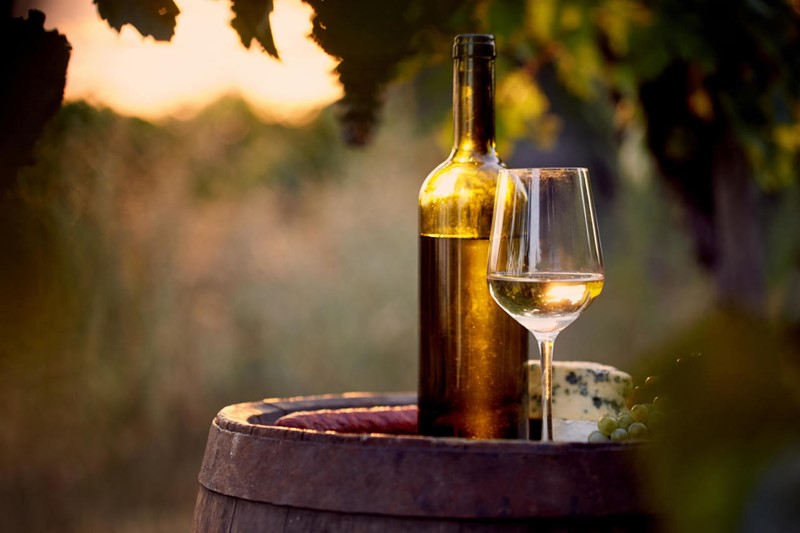It should be remembered that the concept “Natural Wine” is vague. The only natural thing is water and grapes and whose juice, if not handled, will turn into vinegar in the best of cases. Wine is a product of human operation in such a way that man is the only living being on earth that does not drink just to quench thirst. I prefer to call natural wine “pure traditional wine”, that is, without any addition, without meaning that the “purity” in the wine is above what it is not, as 90% of world consumption is.
The etymology of the concept “natural wine” is recent. Until 40 years ago, the harvesters and tavern keepers struggled to show that their wine “has no chemistry.” It was a defense of purism not so much for a moral issue but for the impossibility of adding chemicals because it increased the price of wine. These were the ones that were taken and are still being taken in the towns of Spain made by farmers without any scientific knowledge and without financial means that could counteract their deterioration with oenological products due to their high price. When from the Thirties, in rural areas, oenological products were within reach of the pockets, many of the harvesters were left with the moral uneasiness of using them, but also due to lack of practice. They were the large brokerage operators that had no scruples in applying them and that is how the great frauds occurred at the beginning of the 20th century. The use of a whole series of chemical products including methanol and the fertilization of the vineyard with artificial fertilizers and pesticides used until recently, served to make up for lost time from the aforementioned phylloxeric plague that devastated the European vineyard in the last third of the 19th century. . These practices, which only had the limit of affecting human health, enhancing the performance of the vineyard and the use of chemicals that would prevent the degradation of the wine, became a common skill as something intrinsic to the new productivist times.
When historically the wine without intervention was called simply “wine”, the logical thing would be that those with chemical additives had a name that would identify them vis-à-vis the consumer, something that was not done. Those were times of lax regulations that, although the additives with anti-fraud control were not harmful to health, entered through the back door of the cellars. Good oenology in the field of wine stabilization that allowed logistics for urban consumption had to be used thoroughly to differentiate itself from chemical fraud.
It is in the last nineties when the practices prior to this period begin to be revived, these wines had to add the word “ecological” and “biodynamic” or “natural wine” as if these modes were new in the history of wine when in reality It is the opposite, since 90 percent of the intervened wines that we currently consume are barely 100 years old, discounting the sulfur that was already added in the Greco-Roman civilization.
The “natural” as ideology

The most disconcerting thing about this movement is its “quasi-ultra-orthodox” attitude when it comes to wine, so that if wine becomes ill, they consider it a consequence of Nature and that is how it must be taken. His followers go beyond biodynamics and organic wine. But this does not justify that, for the sake of “the natural”, some display without any shame, totally deteriorated wines before betraying the ideological regulation. Wines with notes of ethanal (oxidation), or a high amount of acetic acid, formic acid, TCA or very outstanding chlorinated notes. All leave the must in the hands of native yeasts, some aggressive and too wild in nature that must be “tied short”.
However, the number of producers of this guild is increasing who, with almost magical talents, make their wines better withstand the passage of time. This has incredible merit. These wines, registered in different associations of “natural wines” on the rise in France, Italy and Spain, are made by fully qualified winemakers with sufficient means and who, nevertheless, choose to pay tribute to the wines of the past. Bodegueros halfway between hippy and huertano with productions of around 1000-3000 bottles, with very reasonable prices. All of them are identified by their love of nature and the vineyard and not a few combine it with other agricultural crops and domestic animals. I think this is the reason why they have no shame in showing their wines, even cloudy, although balanced in flavor, because for them the most important thing is the fact that it is a traditional product historically accepted by a large number of consumers. Practically they do not usually send their samples to the guides nor do they have the slightest interest in entering the media circuits. Some of their labels are absolutely far from any marketinian ambition.
Jose Penin
Possibly the most prolific Spanish-speaking wine journalist and writer.
–


